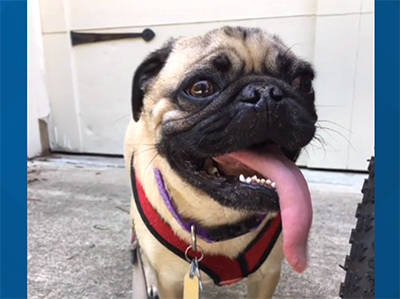
A pug in North Carolina named Winston has tested positive for the coronavirus in what is apparently the first known case in which the virus was detected in a dog in the United States, researchers at Duke University said on Tuesday.
The dog belongs to a Chapel Hill family participating in a research study at the university, in which researchers were trying to understand how humans respond to different types of infection. Three of the family members, Dr. Heather McLean, Dr. Samuel McLean and their son Ben McLean, were also infected by the virus.
The dog’s symptoms lasted only a few days and were mild, according to members of the family — he was sluggish, sneezing and breathing heavily. Most telling of all, they said, he didn’t finish breakfast one morning.
Winston’s preliminary test results, if confirmed by the U.S. Agriculture Department, will raise broader questions about how susceptible animals are to the coronavirus. Experts have said that there is no evidence that pets can transmit the virus to people, and that people should not worry about giving the virus to their pets.
Dr. John Howe, president of the American Veterinary Medical Association, said Winston could have licked something or someone with the virus, causing him to test positive, but that did not mean that the virus was in his bloodstream.
Pugs sneeze every day, and not finishing a meal doesn’t sound concerning, Dr. Howe added.
“I don’t believe he was truly infected — you would need to do an antibody test,” he continued, adding that it is important that people provide their pets with love and care.
“Your pets are not going to catch it from you,” he said.
The Centers for Disease Control and Prevention recommends treating pets as you would your human relatives. They should be isolated from any sick family members and should steer clear from interacting with people outside.
Of the family pets tested, Winston, who is 2, was the only one to test positive. Both Otis, 13, the older of the McLeans’s two pugs, and Mr. Nibs, a 12-year-old tabby cat, tested negative. (The family also has a lizard, which was not tested.) WRAL, a North Carolina television station, first reported the results.